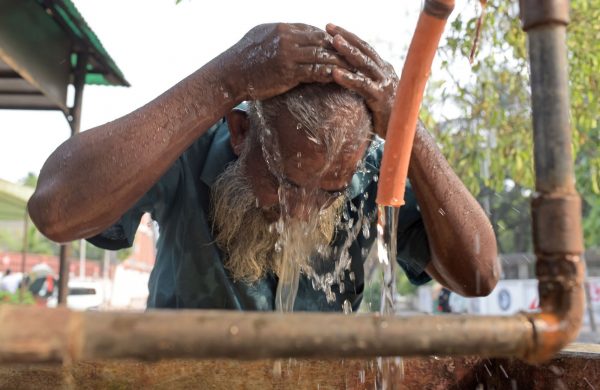Bangladesh among worst sufferers of risky heat with 119m hit: Report
- Update Time : Wednesday, September 18, 2024

UNB, Dhaka:
A recent report by the US-based Climate Central has revealed that Bangladesh is among the hardest-hit nations from climate change-driven extreme heat, with 119 million people—two-thirds of the population—exposed to at least 30 days of dangerous temperatures between June and August 2024.
This stark finding is part of a broader analysis showing that 2 billion people globally experienced at least 30 days of “risky heat” this summer, with fossil fuel burning and human activities being the primary drivers.
Across Bangladesh, the average person faced 48 days of high temperatures made at least three times more likely by climate change, according to Climate Central, an organisation providing information to help the public and policymakers make sound decisions about climate and energy.
Cities like Dhaka, Chattogram, and Rajshahi saw record-breaking heat this summer, with Dhaka experiencing 31 of its hottest days— that can be directly attributed to human-induced climate change.
This prolonged exposure poses significant health risks, especially in a country already vulnerable to the impacts of extreme weather.
The Climate Central report paints a similarly grim picture for the wider South Asian region. Between June and August 2024, temperatures across South Asia were significantly influenced by climate change, driven by the combustion of coal, oil, and gas.
Bangladesh stood out as a nation where temperatures were hotter than 90% of historical records for at least 36 days during this period.
Without the impacts of climate change, these temperatures would not have reached such extreme levels.
In Dhaka alone, the Climate Shift Index (CSI), which quantifies the role of climate change in daily temperatures, recorded a CSI of 3 or higher for many of these heatwaves, meaning these temperatures were at least three times more likely because of climate change.
The rest of South Asia fared similarly, with millions of lives impacted by the increasingly frequent and intense heatwaves.
Bangladesh’s climate crisis reflects a global emergency. The report found that, on average, people around the world experienced 17 extra days of “risky heat” due to climate change, posing significant health risks.
More than 4 billion people faced extreme temperatures at least three times more likely because of climate change, peaking on 13 August.
In total, 72 countries recorded their hottest summer since 1970, and 180 cities in the Northern Hemisphere endured at least one extreme heatwave, which are now 21 times more likely due to carbon pollution.
“No region, country, or city is safe from the deadly threats posed by burning fossil fuels,” said Andrew Pershing, Climate Central’s vice president for science. His words resonate deeply in Bangladesh, where the intersection of poverty and climate change creates a perilous future for millions.
With global temperatures rising, countries like Bangladesh are facing increasingly frequent and deadly heatwaves, which exacerbate existing challenges such as food insecurity, health crises, and economic instability.
Immediate action is needed at both national and international levels to curb emissions, invest in renewable energy, and ensure that vulnerable populations receive the support they need to adapt to the harsh realities of climate change.
Bangladesh’s experience over the past three months serves as a stark reminder of the human toll of climate inaction, and the window for decisive, large-scale intervention is closing rapidly.
The CSI quantified the influence of climate change on daily temperatures. Positive CSI levels 1 to 5 indicate temperatures that are increasingly likely in today’s climate.
A CSI level of 2 means the temperature is at least two times more likely in today’s climate than in a world without human-caused climate change.



















